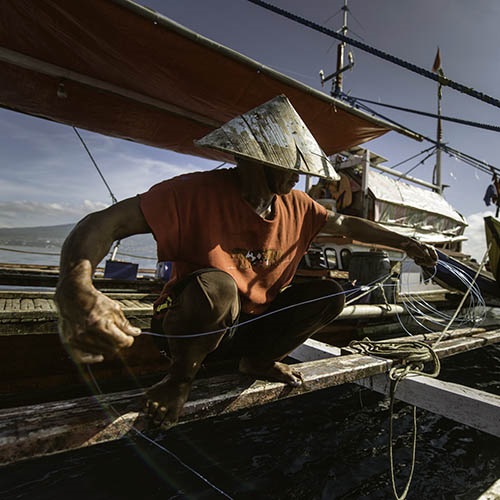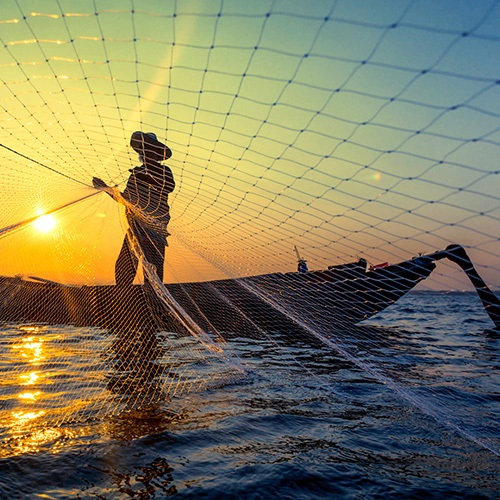International Pole and Line Foundation (IPNLF) and the Kendari handline yellowfin tuna fishery
Awarded: £50,000
This project will help Indonesian yellowfin tuna fisheries progress towards MSC certification.
The fisheries use handline methods, where individual fishers deploy a single line and hook from a stationary vessel. When a tuna bites, the fisher hauls it in by hand. Once landed in the vessel, the tuna is put on ice to maintain freshness.
The project is driven by:
- the International Pole and Line Foundation (IPNLF)
- the Asosiasi Perikanan Pole & Line dan Handline Indonesia (AP2HI)
- the Ministry of Marine Affairs and Fisheries Republic of Indonesia (MMAF)
Its progress is verified through the In-Transition to MSC Program which is required for the fishery to be eligible for Ocean Stewardship Funding.
The fishery is also part of Fish For Good which is a four-year project aimed at guiding fisheries in South Africa, Indonesia and Mexico towards more sustainable fishing practices.
Improving monitoring of fishing operations
Despite this year’s unusual circumstances due to Covid-19, the project has made good progress. IPNLF have hired and trained port-side enumerators who collect vital data on landings. They have deployed vessel tracking devices and time-lapse cameras on 19 vessels to help monitor operations. This will help in particular to find out whether fishing takes place in marine protected areas.
A new Code of Conduct was developed by APH2I and signed by their fishery improvement projects' (FIP) stakeholders. This involved training on FIP concepts, endangered species identification and mitigation as well as vessel registration and national standards for fish handling to prevent spoilage.
Data collected by enumerators across the 67 fishing trips will help during the fisheries’ assessment to the MSC Fisheries Standard. In particular, it will help provide evidence of how the fisheries mitigate any impact on the wider ecosystem.
The IPNLF has participated in technical workshops to help support the development of the Archipelagic Waters Harvest Strategies at the Western and Central Pacific Fisheries Committee meetings. Appropriate harvest strategies – which allow fisheries to be responsive to stock changes – are essential to securing seafood for the future.
“These fisheries are tied to people’s livelihoods and way of life. It’s our responsibility to ensure that this sector is able to sustainably grow and remain viable now and in the future.”
International Pole & Line Foundation (IPNLF)
Find out more

Our impact projects
Discover projects supported through the Ocean Stewardship Fund that are helping to grow sustainable fishing worldwide.

The Ocean Stewardship Fund
The Ocean Stewardship Fund offers grants to both MSC certified sustainable fisheries and improving fisheries.
